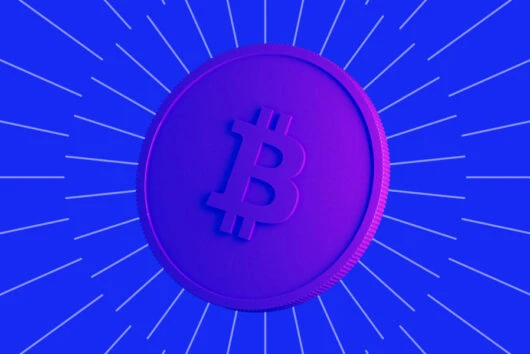The week in review: Bitcoin, gold and S&P 500 correlation hits record high

Another week of DeFi madness, with this week’s frenzy seeing Ethereum’s adjusted weekly trades surpass bitcoin’s for the first time since 2018. On the market front, the bitcoin-gold-S&P 500 correlation hit a record high, and elsewhere, Mastercard is playing the CBDC game with the launch of a new testing platform.
Here are this week’s biggest headlines. Enjoy.
Mastercard releases CBDC testing platform
Payments giant Mastercard announced on Wednesday it’s launched a platform enabling central banks to test how proposed central bank digital currencies (CBDCs) would work in real life.
Its virtual testing environment can simulate the issuance, distribution and exchange of CBDCs between banks and financial service providers, as well as end-consumers purchasing everyday goods and services.
Mastercard said in a statement the new protocol would assist financial institutions in assessing the feasibility of CBDCs and allow them to explore new use cases, including issuance at a local or regional level.
Also included is a facility to analyse and compare different proposed tech stacks for CBDCs, along with the opportunity to evaluate compatibilities with existing payment rails.
Raj Dhamodharan, Mastercard’s executive VP, told Fortune they are already working with some central banks and that other entities like banks or tech firms are being invited to try out the platform.
Pandemic a catalyst for bitcoin adoption: DBS bank economist
Singapore-based DBS Bank has analysed the current state of digital assets in its quarterly report on cryptocurrencies published in August, claiming: “This year is shaping up to be a landmark in the history of digital finance.”
In the report, the bank’s chief economist, Taimur Baig identified two distinct phases of demand: pre-pandemic and post-pandemic. He explains pre-pandemic demand was largely speculative, but that post-pandemic demand goes beyond that.
He said: “It’s more about, ‘This thing has fixed circulation, it will not be debased.’ People are worried about dollar outflow and wondering if they should hold crypto in addition to gold as a safe-haven currency.”
Baig noted the steady rise in gold, while fixed-income yields are heading towards zero. He believes such conditions have also caused “bitcoin to come back quite convincingly.”
Baig pointed out it’s tempting to look at bitcoin through the lens of a foreign exchange (FX) as just another currency with an exchange rate against the US Dollar, but warned: “you can’t value cryptocurrencies like that.”
“While they can have this credibility with a system-based circulation, they’re still not attached to a country’s fortune. So, of course, they will not go and up and down the way the U.S. economy goes up and down. From that perspective, it’s more akin to gold than an FX in my view.”
Read the full report here.
Bitcoin, gold and the S&P show increasing correlation
Gold has traditionally been considered a hedge against speculative investments and right now, the bitcoin price is highly correlated with both gold and stock prices.
As governments around the world scramble to regenerate their economies while balancing curbing the spread of COVID-19, we’ve seen a rise in popularity for “hard commodities”–commodities that are mined or extracted.
Gold has always been top-dog when it comes to storing value. We saw that throughout the pandemic when its price reached an all-time high and is still climbing. But bitcoin has proven itself a worthy contender.
Over the last two months, gold and bitcoin price correlation has increased to a record high.
Bitcoin 60d correlation to gold is pretty wild right now. Highest ever. pic.twitter.com/MsWdtzSBl3
— Alex Thorn (@intangiblecoins) September 8, 2020
The price action is likely more to do with the dollar than with gold itself. Hedges have drawn special appeal considering the US currency is depreciating and since the Federal Reserve recently allowed inflation to rise above the 2% annual target.
This could mean the record correlation between bitcoin and gold indicates investors don’t really see a difference between the two, as they behave similarly and serve the same purpose as stores of value.
But there’s more. Bitcoin’s additional correlation with the S&P 500 solidifies its position as an investment opportunity.
Ethereum pushes past bitcoin in economic activity amid DeFi frenzy
The adjusted weekly value of Ethereum trades has surpassed that of Bitcoin for the first time since early 2018, according to a new Coin Metrics report.
On 5 September, ETH’s 7-day average adjusted transfer value hit $3.08 billion compared to BTC’s $3.01 billion. The metric excludes quick trades – Ethereum’s daily volume is $17 billion – but instead tries to remove “outputs [that] present a legitimate, economic transfer of value.”
Coin Metrics attributes the flip to the rise of DeFi, or decentralised finance. Since the vast majority of DeFi lives on the Ethereum blockchain, ETH is something of a common currency among them. Around $7.6 billion of value is locked up in Ethereum-based DeFi protocols.
Additionally, the introduction of yearn.finance’s yETH vault, a lending protocol that lets people earn interest on their spare ETH, coupled with the rise of SushiSwap, a spinoff of decentralised exchange Uniswap have played a significant role. Over the weekend, its creator “Chef Nomi” sparked allegations of an “exit scam” when they dumped about $12 million on the market.
Coinbase and Circle-led stablecoin USDC also hit a record transfer amount by its users of $1.08 billion. Comparatively, this is almost double USDC’s most recent peak of $622 million in mid-August. Charles Bovaird of Quantum Economics said the recent activity is “probably a sign of the red-hot interest in the DeFi space.”
Luno joins Digital Currency Group (DCG)
On Wednesday, it was announced that the best cryptocurrency exchange in the world ?, Luno has been acquired by New York-based Digital Currency Group (DCG).
As the company’s earliest investor, DCG has been with Luno in some form or other for nearly seven years now. Luno’s mission to upgrade one billion people to a new and better financial system by 2030 is about to be turbo-charged with DCG on board.
Luno’s CEO, Marcus Swanepoel wrote: “When we started Luno, we certainly did not set out to sell the company.
That said, as the industry has evolved over the past few years, it became clearer to me that the most effective way to upgrade the world to a new, better financial system – at scale – is by having a company and business model that is deeply integrated across the entire industry and value chain, and importantly also one where these parts are able to maintain their own identity and brand whilst ‘loosely coordinating’ between one another.
There is only one crypto company in the world that has managed to lay the right foundation for this, and that is DCG. So when the opportunity came up to become a fully-fledged part of the DCG family, we took the opportunity without any hesitation.”
While our customers can expect some exciting additions going forward, Luno will continue to be run independently. There will be no change to how customers can buy, sell, learn or store their crypto, with safety and security continuing to be our top priority. Luno will slot into DCG’s portfolio of crypto offering, which also includes institutional investor, Grayscale.
To read more about this exciting venture, check out Marcus’ post on our blog.
 Discover
Discover Help Centre
Help Centre Status
Status Company
Company Careers
Careers Press
Press


